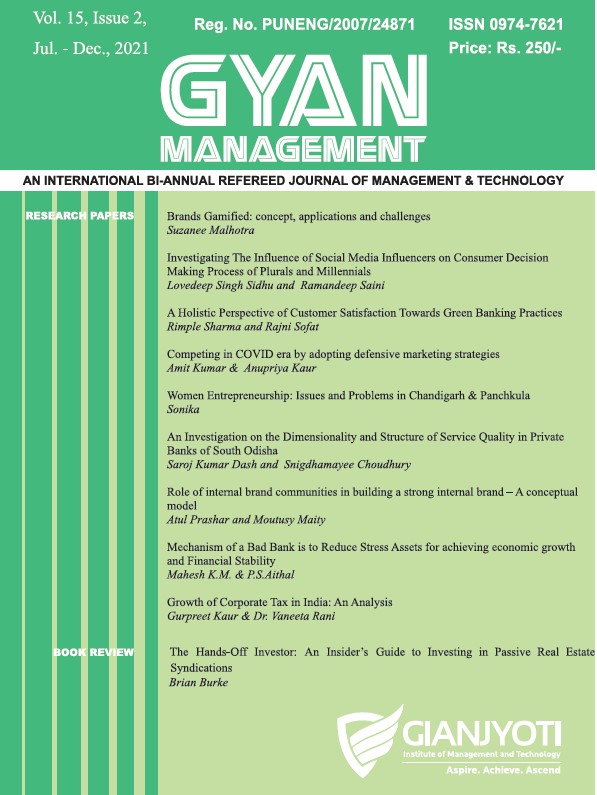The Nexus of Education and Innovation with Sustainable Development
DOI:
https://doi.org/10.48165/gmj.2023.18.2.2Keywords:
Global Education, Innovation, Sustainable development, Equitable futurAbstract
Education and innovation are critical drivers of sustainable develop ment. Education empowers individuals and communities to under stand and address complex sustainability challenges, while innovation provides the tools and technologies needed to transition to a sustain able future. The digital age has revolutionized global education, pre senting both transformative opportunities and complex challenges. The paper highlights the nexus between education and innovation, emphasizing the role of education as a catalyst in driving innovation and sustainable development. Digital technologies, such as artificial intelligence, virtual reality, and augmented reality, offer transforma tive potential to enhance teaching, learning, and accessibility, fostering personalized learning experiences. Additionally, the paper presents real-world examples of how education and innovation are being lev eraged to promote sustainable development. It acknowledges regional variances in educational landscapes. The paper presents key findings that demonstrate the crucial role of education in fostering sustain ability consciousness and empowering individuals to make informed decisions for a sustainable future, also emphasizes the role of innova tion as a catalyst for sustainable development, driving the creation of new technologies, processes, and business models to address environ mental, social, and economic challenges.
Downloads
References
Brundtland, H. G. (1987). Our common future: Report of the World Commission on Environment and Development. Oxford University Press.
UNESCO. (2016). Education for sustainable development goals: Learning objectives. UNESCO.
World Economic Forum. (2020). The future of educa tion and skills 2020: Learning to unlock human
potential in the Fourth Industrial Revolution. World Economic Forum.
Tilbury, D., Berrone, P., & St. Pierre, M. (2015). Education for sustainable development and transformative learning. In Handbook of theory and research in sustainable development education (pp. 224-249). Springer.
Gadotti, M. (2009). Educating for sustainable develop ment: A critical contribution to the twenty-first century agenda. UNESCO International Bureau of Education.
UNESCO & UNEP. (2012). Education for sustainable development sourcebook. UNESCO.
World Future Council. (2019). Education for transforma tion: Retooling our education systems for sustainable development. World Future Council.
Sterling, S. R. (2014). Higher education, sustainability and the transformation of the public world: Playing the long game. Routledge.
Downloads
Published
Issue
Section
License
Copyright (c) 2024 Gyan Management Journal

This work is licensed under a Creative Commons Attribution 4.0 International License.



